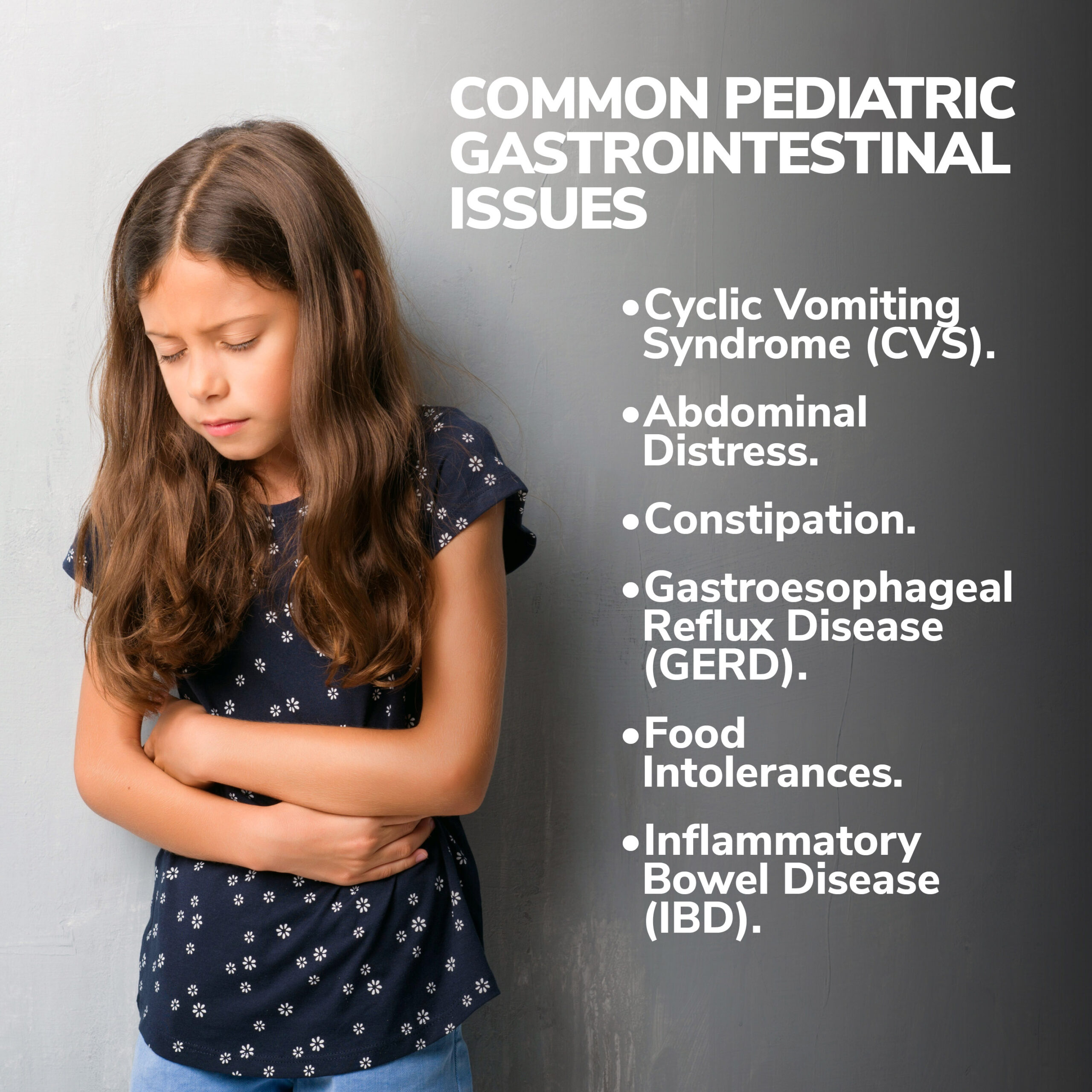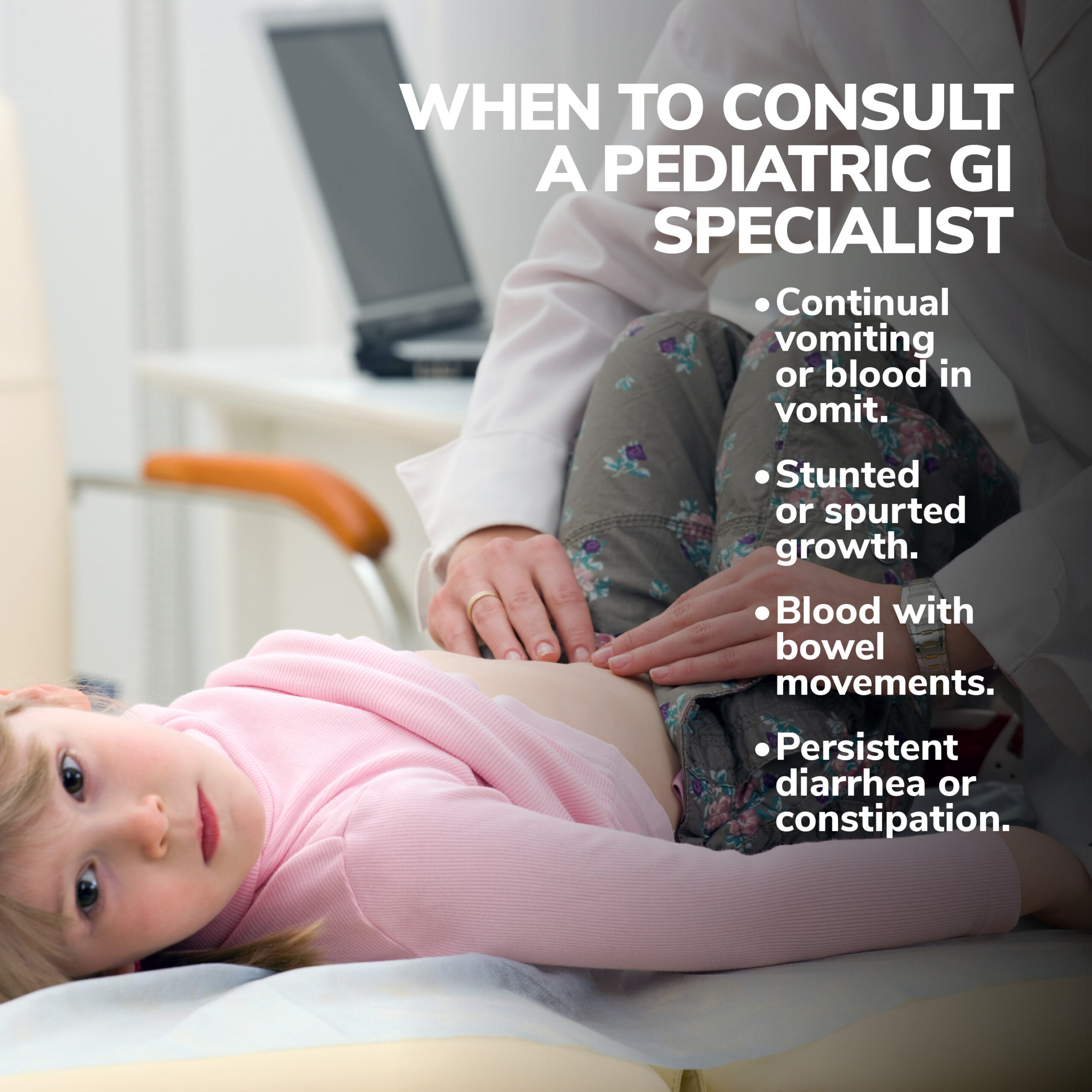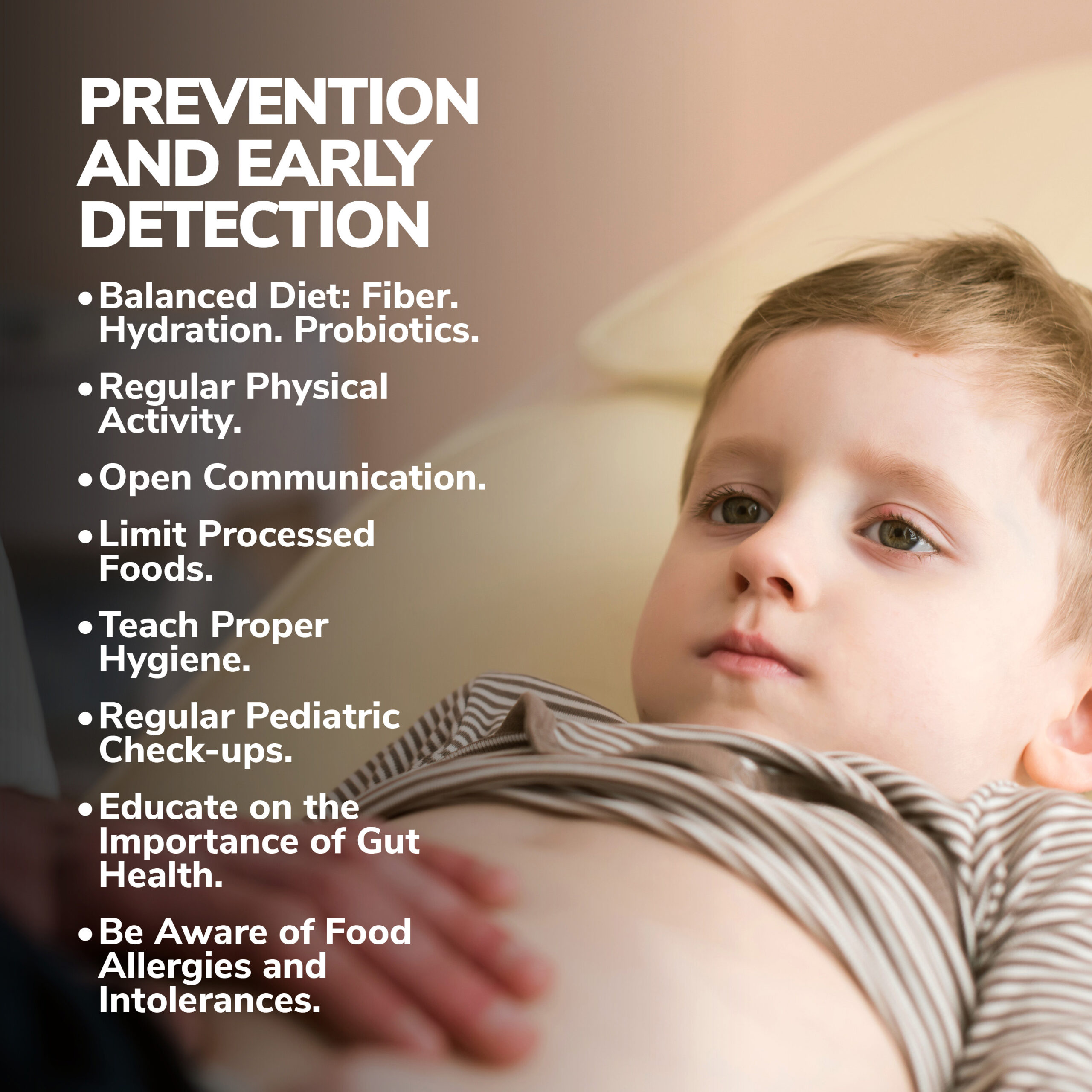
When to Seek Help: Gastrointestinal Concerns in Children
Gastrointestinal (GI) issues are often associated with adults or older individuals. Yet many children face various GI conditions affecting their overall health and well-being. Understanding the unique aspects of a child’s GI system, common pediatric gastrointestinal issues, and when to consult Gastroenterology of Greater Orlando is vital to your child’s GI health.
Understanding the Pediatric GI System
Just like any other system in the body, a child’s digestive system undergoes developmental changes from birth. It’s essential to be aware of these differences to understand how pediatric GI issues may occur. During the early stages of development, newborns often experience common gastrointestinal problems, such as acid reflux, due to the incomplete formation of the lower esophageal sphincter (LES). The LES prevents stomach acid from flowing backward and up the throat. If you suspect that your child is facing GI problems, please contact our team so we can provide the best treatment.
Common Pediatric Gastrointestinal Issues
While children can experience a wide range of GI conditions like those in adults, certain issues are more common in children. Here are some of the most frequently encountered pediatric gastrointestinal problems:
- Cyclic Vomiting Syndrome (CVS): Cyclic vomiting syndrome is a condition of recurrent episodes of severe vomiting that occur in cycles. While CVS can affect individuals of all ages, it is predominantly found in children. The exact cause of CVS is unknown, but triggers such as emotional stress, infections, or certain foods can contribute to the onset of vomiting episodes. If your child experiences frequent bouts of severe vomiting, please contact our team for proper diagnosis and management.
- Abdominal Distress: Many children experience minor stomach discomfort, such as gas or bloating, which usually resolves over time. Chronic or severe abdominal pain may indicate an underlying gastrointestinal issue that requires further evaluation and treatment. If your child constantly complains of pain, that is a major red flag.
- Constipation: Difficulty passing stools is a common problem among children. While occasional constipation is usually not a cause for concern, persistent or recurrent constipation can negatively impact a child’s overall well-being. If your child experiences ongoing constipation, we can help you with dietary modifications, lifestyle changes, and, if necessary, recommend appropriate medical interventions to ease the symptoms.
- Gastroesophageal Reflux Disease (GERD): Gastroesophageal reflux disease is the inflammation and scarring of the esophagus caused by frequent acid reflux. This condition is prevalent in newborns and infants and is often characterized by symptoms such as hiccups, gagging, vomiting, and an aversion to food.
- Food Intolerances: Food intolerances, such as lactose intolerance or celiac disease, can significantly affect a child’s gastrointestinal health. Lactose intolerance occurs when the body has difficulty processing lactose products, leading to symptoms such as bloating, diarrhea, and abdominal discomfort. Also, Celiac disease is an autoimmune reaction to gluten that damages the small intestine.
- Inflammatory Bowel Disease (IBD): Inflammatory bowel disease encompasses gastrointestinal issues like Crohn’s disease or ulcerative colitis. Even though IBD is more common in adults, children can also be affected. These conditions involve chronic digestive tract inflammation, leading to various symptoms such as abdominal pain, diarrhea, and weight loss. Should your child consistently show these gastrointestinal signs, contact a pediatric GI expert for a thorough assessment and care plan.
It’s important to promptly address GI issues in infants, toddlers, and children, as these problems can interfere with their ability to receive adequate nutrition for growth and development.

When to Consult a Pediatric GI Specialist
Recognizing the signs that indicate the need for a pediatric GI specialist is essential for ensuring timely and appropriate medical intervention. While every child is different, here are some clear indications that warrant a visit to our office:
- Continual vomiting or blood in vomit: If your child experiences persistent vomiting or notices blood in their vomit, seek the advice of a pediatric GI expert. These symptoms may indicate a more significant underlying issue that requires prompt medical attention.
- Stunted or Spurted Growth: If you notice a significant slowdown or an abnormal increase in your child’s growth, even with proper nutrition, contact a pediatric GI specialist. They can evaluate your child’s GI health and provide guidance to ensure proper growth and development.
- Blood with bowel movements: Blood in bowel movements is never normal. If your child consistently passes bloody stools, seek immediate medical attention. This symptom can indicate a severe gastrointestinal issue that needs prompt assessment and intervention.
- Persistent diarrhea or constipation: Regular episodes of diarrhea or ongoing constipation can severely disrupt a child’s daily life. If these symptoms are a consistent issue for your child, seeing a pediatric GI specialist for comprehensive analysis and effective treatment is recommended.
If you notice any of the above complications or have concerns about your child’s gastrointestinal health, schedule an appointment with Gastroenterology of Greater Orlando as soon as possible.

Prevention and Early Detection
The digestive health of your child is crucial for overall well-being. Here are some ways to ensure that your child’s gastrointestinal system remains healthy and how to detect potential issues early:
- Balanced Diet:
Fiber: Ensure your child’s diet is fiber-rich from fruits, vegetables, and whole grains. Fiber helps in smooth bowel movements and prevents constipation.
Hydration: Drinking ample water aids digestion and ensures a soft stool consistency.
Probiotics: Consider adding yogurt and other probiotic-rich foods to boost the gut’s good bacteria, promoting a healthy digestive system.
- Regular Physical Activity: Encourage your child to engage in regular physical activities. This not only ensures overall health but also aids in digestion and prevents constipation.
- Open Communication: Make it a habit to talk about daily routines. Asking simple questions about their bowel movements or any discomfort can provide early signs of potential issues.
- Limit Processed Foods: While occasional treats are okay, a regular diet high in processed and junk foods can lead to constipation and other digestive issues.
- Teach Proper Hygiene: Hand washing, especially before meals, can prevent many infections that can affect the gastrointestinal system.
- Regular Pediatric Check-ups: Regular visits to the pediatrician can catch potential issues before they become severe. Growth charts, in particular, can point toward digestive health issues and improper nutrient absorption.
- Educate on the Importance of Gut Health: As children grow, educate them on the importance of a healthy gut. Understanding the connection between what they eat and how they feel can encourage better food choices.
- Be Aware of Food Allergies and Intolerances: If your child frequently complains of stomach aches or shows symptoms of digestive distress after eating specific foods, get them tested for food allergies or intolerances.

Accessing Skilled Pediatric GI Care in Your Area
At Gastroenterology of Greater Orlando, our dedicated gastroenterologists are committed to providing comprehensive care for children with GI concerns. If you’re seeking a trusted pediatric gastrointestinal doctor, our experienced care team can offer the expertise and guidance you need. We focus on our patients’ well-being and work collaboratively with families to ensure the best possible outcomes for their children.
Our team of experts is here to help diagnose and treat your condition with the utmost care and expertise. Our practice began more than 15 years ago and has emerged as one of the leading gastroenterology practices in central Florida. We perform a host of diagnostic procedures using state-of-the-art equipment in a friendly, comfortable, and inviting atmosphere where patient care is always a top priority. Contact us today!